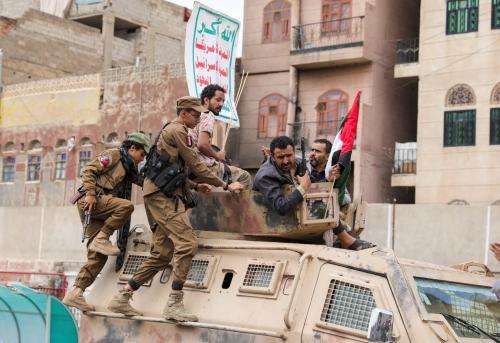The horrible attack on a shopping mall in Kenya this week, the attack on a natural gas plant in Algeria earlier this year and the ongoing growth of al-Qaeda franchises in Syria all underscore the remarkable ability of al-Qaeda and associated movements to attract volunteers from across the Islamic world to its ranks. Al-Qaeda has achieved a long-sought goal of Islamist politics: the creation of a pan-Islamist militancy that operates across national borders and national politics. This transnational quality is one of the keys to al-Qaeda’s remarkable regenerative capacity, its ability to survive massive counterterrorism campaigns and rebuild operational capability quickly.
Much remains unclear about the al-Shabab al-Mujahedeen attack on the Westgate shopping mall in Nairobi, but it appears increasingly likely that the terrorists included at least a few foreign militants. Al-Shabab has long recruited volunteers for its jihad in Somalia from Somali expatriate communities abroad, including a substantial number in the United States. There is much speculation that a British citizen, Samantha Lewthwaite, was among the attackers. She is famous among jihadists as the wife of one of the British citizens of Pakistani origin who staged an attack on the London underground train system in July 2005. Foreign terrorists with years of living in Western societies would have been easier to slip unnoticed into the fashionable shopping mall and blend in with its multinational clientele.
The January 2013 attack on the Amenas natural gas facility in Algeria was also carried out by a multinational Islamist force. The gas facility, jointly managed by Algeria’s national gas company and the Norwegian Statoil company, was the target of an attack by 32 terrorists belonging to an al-Qaeda splinter group headed by Mokhtar Belmokhtar. Belmokhtar is an Algerian veteran of training in Afghanistan in the 1980s who values recruiting across national borders. The attackers included a dozen Algerians, 11 Tunisians, two Canadians and others from Mauretania, Mali, Egypt and Libya. The leader of the team was from Niger. The two Canadians were from London, Ontario.



Commentary
Op-edKenya Terror Strike Al-Qaeda’s Latest in Global Jihad
September 27, 2013